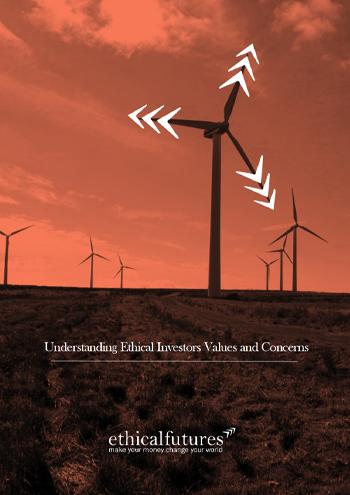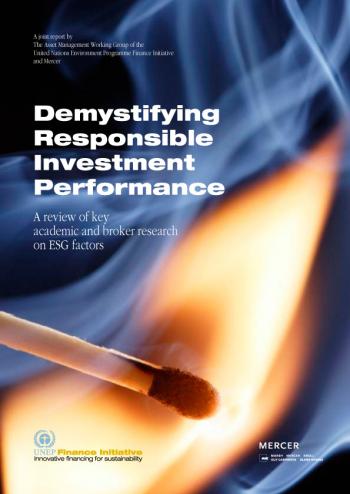
How do I know that investments are ethical?
Will I make less money by investing ethically?
Is ethical investment riskier than mainstream investment?
Can I invest in renewable energy?
Is it just stocks and shares you advise on?
Is it just investments you advise on?
How long does a meeting last?
What is the cost of advice?
Access all areas
How do I know that investments are ethical?
Ethical values will vary from person to person, but there are consensus approaches amongst many investment managers which reflect common ethical concerns around issues such as; armaments, alcohol, human rights, pornography, labour standards and environmental issues.
There are a number of different styles and approaches to ethical screening and Ethical Futures will work with you to decide what investment and fund styles are most suitable for your needs.
Will I make less money by investing ethically?
There is a strong consensus in investment markets that it is the allocation of your investments across different assets which influences how your investments perform and not necessarily the underlying investments. You can read further about this in our Investment Philosophy White Paper.
It is true to say that some ethical investments may perform differently to mainstream benchmarks and this is because of the selection of certain types of investment assets. However, there is now a strong body of evidence to suggest that over the longer term, investing in values led and responsible investments will not impact on your investment performance and may indeed enhance it. For more information see the Mercer White Paper – Demystifying Responsible Investment Performance.
Is ethical investment riskier than mainstream investment?
Ethical investment will limit the scope and range of its investee companies due to the ethical screens applied. Some may feel that this introduces a greater degree of risk, but as most investment groups make a selection about how and where they invest anyway it is really just a variation on an investment strategy called active investment.
As previously commented, the actual allocation of investment monies across a range of different investment assets is the way in which we manage the risk of volatility of your investment funds.
Can I invest in renewable energy?
Yes. You will find that a lot of ethical investments do invest part of their money into renewable energy as it is an industry of the future. However, focus on one type of investment is very risky and therefore we always recommend investment in a well diversified portfolio which can give you access to a wide range of interesting investments which will help spread risk and reduce volatility.
Arguably, there are better ways to address issues of climate change etc than investing in energy generation: such as energy efficiency measures, recycling and waste management. All of these would be common features in an ethical investment portfolio.
Is it just stocks and shares you advise on?
Our job as financial planners is to provide the most appropriate and suitable advice for clients to meet their personal financial objectives. In doing so, we will consider a wide range of assets including stocks and shares based investments as well as cash deposits and other structures. We tend to focus on regulated investments which are readily realisable and covered by relevant government compensation schemes.
There are of course other areas of developing investments, such as peer-to-peer and social impact investment. However, we tread carefully in these areas because many of them are unregulated, very small and difficult to assess.
Is it just investments you advise on?
No, we are general practice financial planners. By this, we mean that we advise across a range of financial issues which you may need in your journey through life. This will include the provision of protection and life assurance to protect you and your family in the event of ill-health death or disability or planning for your retirement by way of pensions.
We also provide pure planning advice in connection with decisions you may have to make about occupational benefits from your employer or considering issues such as estate planning or philanthropy.
How long does a meeting last?
There is no set time, but initial meetings will generally last up to an hour. The first half an hour or so is likely to be spent explaining our services and understanding a bit about your situation and needs. As a result of this, you should then have a better idea of how we can help you and what the next steps might be.
Thereafter, depending on your situation, we may continue the meeting to carry out our initial 'Factfind' or we may suggest reconvening at a time when we have gathered more information and can discuss your needs more fully.
What is the cost of advice?
Our initial meeting is free of charge and an opportunity for us both to get to know each other. If you agree to proceed with the advice process, we will then provide you with written confirmation of the fixed project fee for our initial advice.
Initial advice fees are based upon hourly rates of all staff concerned in delivery of the advice and will be presented as a fixed project fee. The level of fee will vary dependent upon the complexity of advice required.
We also charge for ongoing advice related to provision of further annual reviews or monitoring of your investments. Annual reviews are paid for by way of a monthly retainer fee whereas fund monitoring is based upon a percentage of the value of investments under our management and advice. Again, the level of fee is dependent upon the complexity of advice concerned.
Access all areas
We endeavour to make our services available to everyone. Our meetings are generally held at our offices at 9 Mansfield Place, Edinburgh. The offices are on the ground floor but accessed by a small flight of 6 stone steps with a hand rail. We realise that this might present problems to clients with restricted mobility. If this is the case, just let us know and we’ll be happy to make alternative arrangements for a meeting, such as arranging a visit to your home or workplace, or an alternative, convenient location for you.
We believe in breaking down barriers of communication. That’s why we always try to avoid acronyms or industry terms, and instead use everyday language that everyone can understand.








